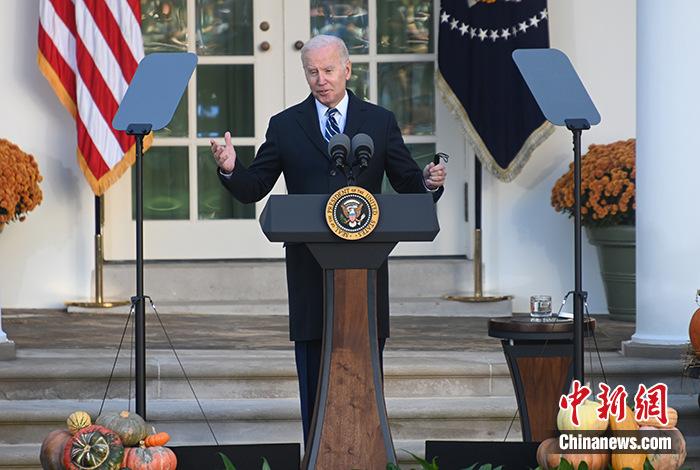Biden backs Fed to tighten monetary policy to control inflation
Xinhua News Agency, Washington, January 19 (Reporter Gao Climbing Xu Yuan) US President Biden said on the 19th that he supports the US Federal Reserve to tighten monetary policy to control inflation.
Data map: US President Biden attends an event at the White House.
Photo by China News Agency reporter Chen Mengtong
Biden said at a press conference at the White House that day that the new crown epidemic has triggered rapid price increases around the world.
The Fed has a dual mandate to achieve full employment and maintain price stability, and the key responsibility for ensuring that inflation does not become entrenched lies with the Fed.
Biden said that over the past year and a half, the Federal Reserve has provided extremely loose monetary policy support in response to the epidemic.
Given the direction of the U.S. economy and the magnitude of recent price increases, a recalibration of policy support is necessary, as Fed Chair Jerome Powell has hinted.
He respects the independence of the Fed.
Biden said that the best solution to high prices is to increase the productivity of the U.S. economy and enhance the ability to provide goods and services to the American people.
To this end, he proposed a three-part plan to boost U.S. economic growth and keep inflation under control, including addressing supply chain bottlenecks, pushing Congress to approve a spending package aimed at lowering household living costs, and promoting industry competition to prevent some big companies from monopolizing the market .
Biden also pointed out that the US economic recovery and epidemic response still face major challenges, and he understands that the American people are "frustrated and exhausted" by the repeated epidemics.
Affected by the recent severe rebound of the epidemic and the continued rise in inflationary pressures, U.S. consumer confidence has fallen, and multiple polls have shown that the American public’s approval rating for Biden has also fallen sharply.
Powell said at a U.S. congressional hearing last week that the Federal Reserve may raise interest rates more often and shrink its balance sheet earlier and faster to deal with persistent high inflation.
Data from the U.S. Department of Labor showed that the U.S. consumer price index rose 7 percent in December from a year earlier, the largest year-on-year increase in nearly 40 years.

